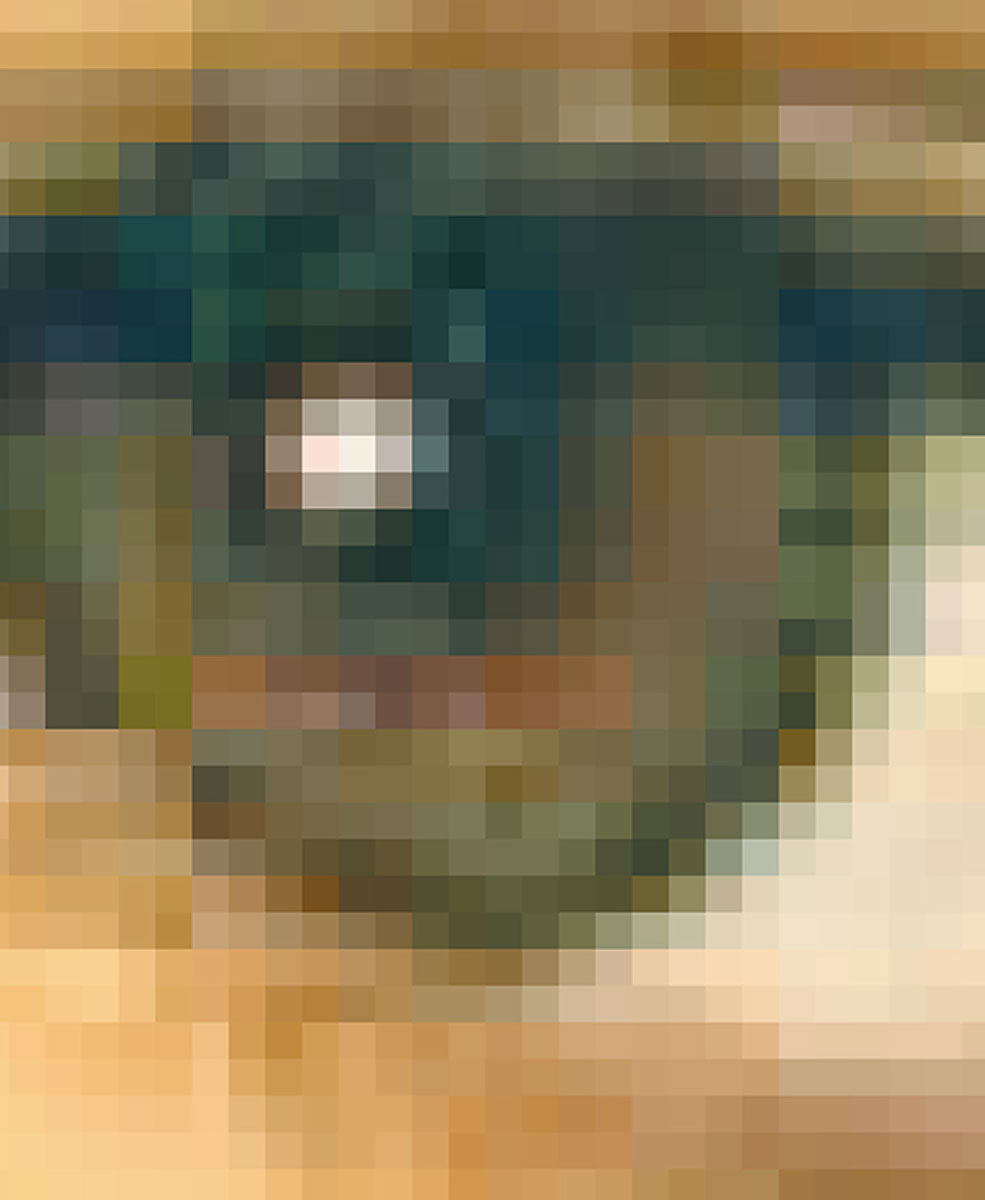Colors / Hazel
A patchouli scent of promise
Jonathan Lethem
“Colors” is a column in which a writer responds to a specific color assigned by the editors of Cabinet.
Oh, Hazel, you’re making me crazy and lazy and hazy! Hazel, I think I love you! Hazel, you were the beginning of sex to me, a boy’s love for an adult woman’s mystery. I’m a little drunk on you, when I dim the lights and let the memories flood in... Hazel, you are a gypsy dancer... but let me try to explain.
My eyes are blue. Blue-gray. My father, a Midwestern Quaker, has blue eyes. My Jewish mother had eyes that were something other. Brown, I would have said. My brother ended up with those eyes too. Hazel, my parents both explained. This was important. Look for the green in the brown, the shimmer—that’s Hazel. I tried, I looked. I pretended to see it, gazing into my mother’s eyes, yes, sure, it’s there—Hazel. They looked brown to me.

I associated this with a game of my mother’s, another trick of gaze: She’d put her nose to mine so that our faces were too near to see in focus and say, with bullying enthusiasm, “See the owl! Do you see the owl? It’s an owl, do you see it?” I never could see the owl. A blur, a cyclops, maybe a moth, but never an owl. I didn’t know how to look for the owl. But I didn’t know how to refuse: “Yes, I see the owl!” It was the same with Hazel. I saw and I didn’t see. I saw the idea: something green in the brown, a richness, something Jewish and enviable and special, not mere brown eyes. The notion of Hazel balanced, in our family, against the specialness of blue eyes, it stood for everything that wasn’t obvious in the sum of advantages or virtues between two parents. Hazel was my mother’s beatnik Jewish side, her soulfulness. I granted it—I was in love with it! So Hazel was my first imaginary color, before Infrared, before Ultraviolet, and more sticky and stirring than either of those: Hazel is to Ultraviolet as Marijuana is to Cocaine, as Patchouli is to Obsession. My mother wore patchouli—it smelled Hazel.
My next Hazel was when I was fourteen or fifteen. My father is a painter, and I was following in his footsteps. He had a drawing group, every Thursday night. I’d go and draw, sitting in the circle of artists, the one kid allowed. From the nude model. A mixed experience, a rich one. I was sneaking looks for hours at a time, in plain sight. This was the seventies. I demanded they treat me as an adult, and I was obliged. And there were two beautiful women, artists, who sat in the circle and drew from the model as well: Laurel and Hazel. Like the names of two rabbits. Laurel was blonde and Hazel dark, no kidding. I loved them both, mad crushes. Again, an intoxicating mix, the nude before me, Hazel and Laurel my peers in the circle. The model would finish with a pose and you’d go around, murmuring approval of one another’s drawings, pointing out flourishes. Steamy, for a boy. Crushes on your parents’ female friends, when you’re a hippie child, mash mothery feeling with earthy first stirrings of lust—you’re not afraid of women’s bodies when you’re a hippie child. That’s got to be invented later, retroactively. I took showers outdoors with nudists, it was all good. Hazel was waiting for me, she was in store.
Then the Dylan song, of course, from Planet Waves. “Hazel.” Planet Waves I’d put with New Morning and Desire, the three records of Dylan’s most saturated with hippie aesthetics, the sexy gypsy stuff, the handkerchief-on-the-head phase. “Hazel” is a ragged, tumbling song of lust, that Rick Danko organ sound: “You got something I want plenty of….” And from the same record, another lyric: “It was hotter than a crotch….” My mother loved Dylan, so it all folded together, the hot murk of Hazel, what I’d never seen but was ready to see, the green in the brown, Hazel, Dolores Hazel, oh, I long for you still, you were the beaded, reeking initiation I never quite had, girls with potter’s clay under their fingers, maybe, girls who when they danced spun in whirling skirts, and sex outdoors with bugs around and the sun in hazel eyes. And at night we’d see the owl, I was sure. Instead by the time I was ready it was an infrared or ultraviolet world, we danced with knock-kneed Elvis Costello jerks, sneering at Hazel, those grubby Deadhead girls in the next dorm, and made out with short-haired punks in cocaine fluorescent light. We reinvented body-fear, pale anemic anorexic sex-ambivalence. Hazel might be having all the fun, but she was shameful now, David Byrne had explained the problem perfectly. I pretended I’d never known her, and I hadn’t—only trusted she’d be there, and detected the patchouli scent of her promise to me, the promise I failed to keep. Hazel, I never saw you.
Jonathan Lethem lives in Brooklyn and Toronto. His most recent book is This Shape We're In, a novella.